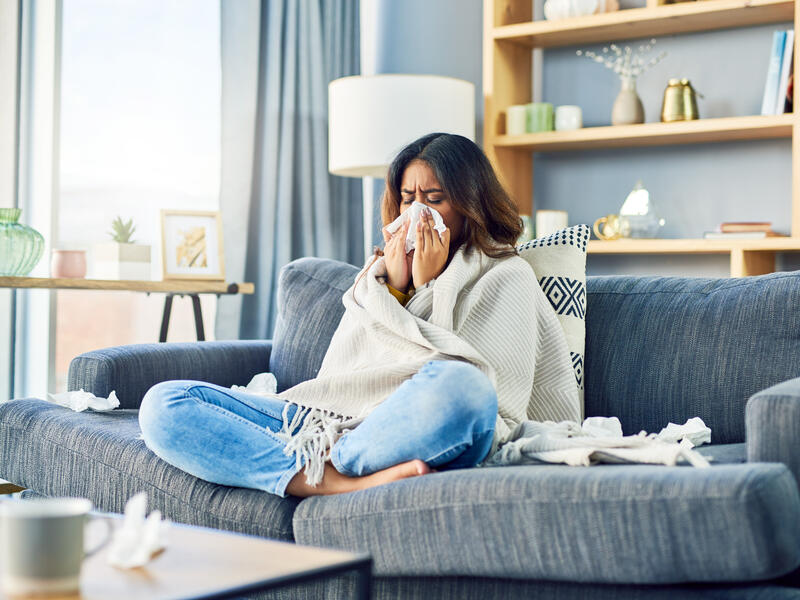If the dreaded sniffles, sneezing and congestion of seasonal allergies strike while you’re pregnant, take a moment before reaching for your usual medication. Some allergy medications can be harmful to growing babies.
Be mindful of the medications you’re taking. If possible, avoid allergy medications entirely during your first trimester.
But most importantly, talk to your doctor before taking any allergy drugs at any point during pregnancy.
Some oral antihistamines like Allegra (fexofenadine), Benadryl (diphenhydramine), Chlor-Trimeton (chlorpheniramine), Claritin (loratadine) and Zyrtec (cetirizine) appear to be safe after the first trimester. That means they have caused no known harm in studies so far.
Shelve certain allergy medications for now
Certain oral decongestants are associated with an increased risk of birth defects. These are medications taken by mouth that relieve congestion. Avoid antihistamines that are combined with a decongestant. You can recognize those because they often have a D for decongestant after the name, like Claritin-D.
Nasal sprays, as prescribed or recommended by a doctor, are medications applied in the nose. That means their effects don’t go throughout the body like oral medications. It’s still recommended that pregnant people avoid nasal spray decongestants. There isn’t enough evidence to show whether they’re safe.
Related: Safe medications during pregnancy
If you’ve been considering starting allergy shots, put them off until after your baby is born. If you were already taking allergy shots when you became pregnant, you can continue.
Keep taking allergic asthma medication if you were prescribed it. Uncontrolled asthma can cause serious health issues during pregnancy.
Watch the pollen count
The main culprit behind spring allergies is pollens in the air. Pollens primarily come from trees and grasses.
When pollen grains get into the nose, the immune system mistakenly labels them as foreign and releases antibodies to attack them. That leads to the release of chemicals called histamines into the blood. Histamines trigger runny noses, itchy eyes and other symptoms.
Avoiding triggers is your first and best option, although that isn’t always easy. Check your city’s daily pollen count. The higher the pollen count, the more severe the allergies. When the counts are high or when it’s windy, keep your windows and doors closed. If possible, stay inside.
Minimize allergies
There are some other steps you can take to curtail allergies:
- Use an over-the-counter saline nasal spray, or rinse the nasal cavity with a neti pot once or twice a day. Follow the product directions for safe use.
- Physical activity can help reduce nasal inflammation.
- Using nasal strips at night and elevating the head of your bed can help keep your nasal passages more open while sleeping.
Not taking allergy medication is the best option for you and your baby. But you have options if your symptoms are interfering with your sleep or daily life. Talk to your doctor about safe allergy medications you could take.
Keep in mind: Neither seasonal allergies nor pregnancy lasts forever. While pregnant, try to avoid potential triggers and use alternatives to medications. There is an end in sight, and soon you’ll be breathing easy and enjoying a healthy, happy baby.
Learn more
- How to ease heartburn during pregnancy
- Medications for high blood pressure during pregnancy
- Prevent and treat hemorrhoids during and after pregnancy
…
Posted In Ear, Nose & Throat, Health Information, Pregnancy, Women's
